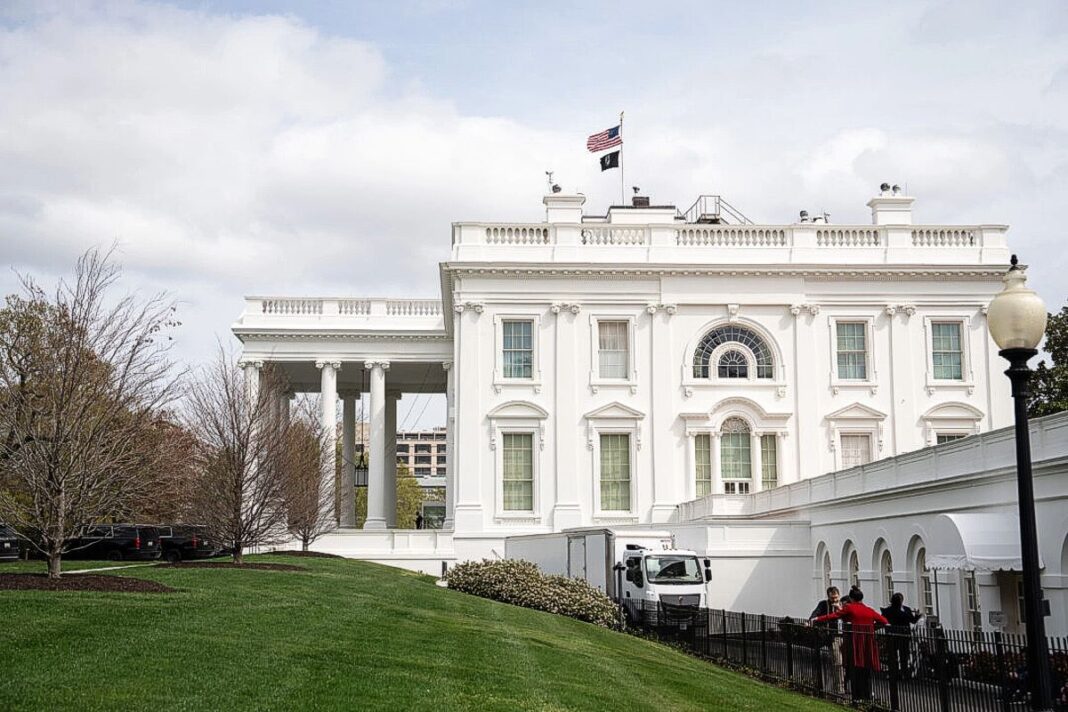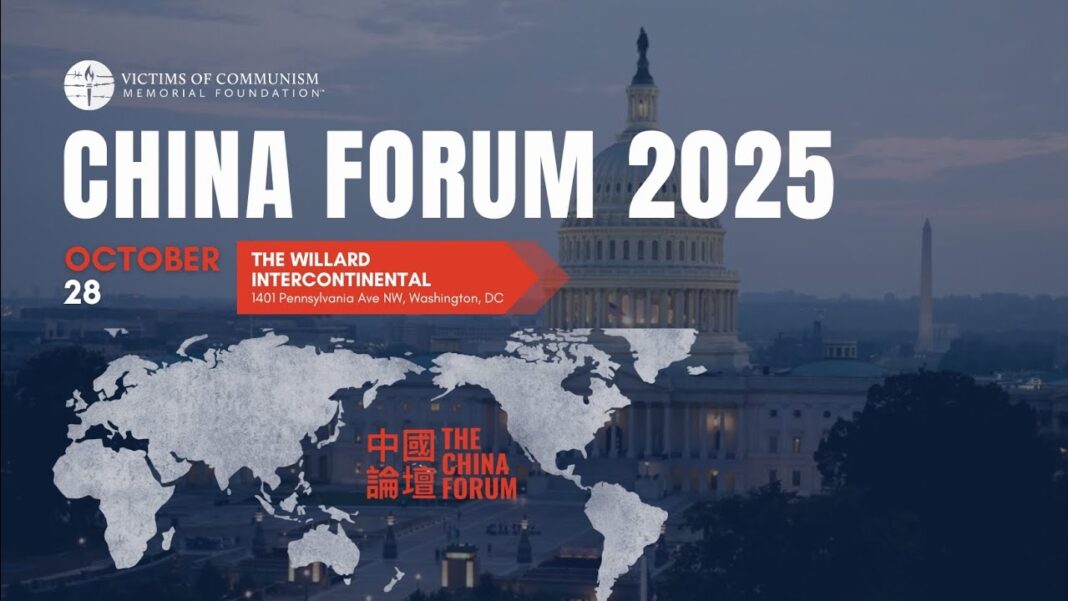Throughout America’s history, the presidency has been more than a position of political power; it has been the symbol of national unity and constitutional order. The Founders understood this when they carefully constructed the framework for succession and authority, ensuring that leadership of the nation would never fall into the hands of someone who might not hold full allegiance to it. The Constitution is clear about who can serve as President of the United States: only a natural-born citizen, at least thirty-five years of age, and a resident of the United States for fourteen years. This requirement was not arbitrary. It was meant to preserve the integrity of the office and to ensure that whoever leads the nation was bound to it from birth in loyalty, identity, and interest.
Yet in modern times, there exists a subtle but dangerous inconsistency in the way that same principle is applied. The Constitution sets uncompromising qualifications for the presidency, but the broader structure of federal leadership allows individuals who do not meet those qualifications to hold offices that are, by law, within the line of succession to the presidency. That contradiction is not merely academic. In a catastrophic situation, it could have very real consequences for the survival and legitimacy of the government itself.
The Constitutional Foundation
Article II, Section 1 of the U.S. Constitution leaves no room for interpretation regarding eligibility. The phrase “natural-born citizen” was included to prevent the potential of foreign influence or divided allegiance at the highest level of government. The Founders, having seen the manipulation of monarchies and the infiltration of foreign powers into European courts, understood that allegiance is not simply a matter of oath, but of origin. This was later reinforced through centuries of precedent, with every President in American history meeting that constitutional threshold.
The Constitution also provides for a line of succession, clarified through statutory law. Should the President die, resign, or become incapacitated, the Vice President assumes the office. If both the President and Vice President are unable to serve, the responsibility passes to the Speaker of the House, followed by the President pro tempore of the Senate, and then through the Cabinet in a specific order defined by Congress. This line is codified in the Presidential Succession Act of 1947, which was designed to maintain continuity of government under all circumstances.
But while the line of succession appears orderly on paper, it contains a constitutional flaw: many of those listed within it, members of Congress and Cabinet officials, are not required to be natural-born citizens. They may be naturalized citizens who came to this country later in life and earned their place in government through service and achievement. There is no question that many such individuals are dedicated patriots. Yet in a moment of national crisis, that distinction between natural-born and naturalized could become the very factor that determines whether the government continues under constitutional authority or slips into constitutional chaos.
The “What If” Scenario
Imagine a worst-case scenario, something that would normally seem fit only for fiction. A large-scale terrorist attack or catastrophic event occurs in Washington, D.C., during a State of the Union address. The President, Vice President, Speaker of the House, President pro tempore, and all Cabinet members present are killed. It is a nightmare few want to contemplate, but one for which contingency planning exists. In reality, this is precisely why the practice of naming a “Designated Survivor” exists: one official in the presidential line of succession is kept away from such events, housed in a secure location, ready to lead if the unthinkable happens.
Now imagine that the designated survivor, or the only surviving official following such a catastrophe, happens to be a naturalized citizen, a person who, though lawfully serving in high office, is constitutionally ineligible to be President. In that moment of devastation, with panic gripping the nation and leadership desperately needed, what happens next?
Legally, the answer is clear: that individual cannot assume the presidency. The Constitution bars it unequivocally. The law would require that person to be skipped in the line of succession, and authority would pass to the next eligible person. But what if there is no one left? What if every individual in the line of succession is dead, incapacitated, or constitutionally ineligible? The system has no definitive answer to that question.
This is not simply a theoretical gap. History has shown that in times of crisis, even the strongest democracies can bend or break their own rules in the name of necessity. After a tragedy of such magnitude, when the public demands immediate leadership, the pressure to “temporarily” overlook constitutional requirements could become overwhelming. Someone might argue that the nation cannot afford to wait for Congress to reconvene or for new officials to be appointed. The temptation would be to let the surviving leader act as President, even if the Constitution forbids it. And in that single decision, made perhaps with good intentions, the rule of law could be replaced by the rule of circumstance.
The Fragile Line Between Order and Chaos
The Founders anticipated much, but they could not predict every possible crisis of the modern age. Nuclear threats, biological attacks, cyber warfare, these are the kinds of existential dangers they could scarcely imagine. Yet the principle they enshrined remains timeless: the Constitution must be followed even when it is inconvenient, and especially when it is difficult. To ignore it in the name of survival is to undermine the very foundation we claim to be preserving.
There is also the matter of legitimacy. The presidency is not only a seat of power; it is the moral and constitutional center of the Republic. If someone constitutionally barred from the office were to assume it, even temporarily, the nation would face a legitimacy crisis that could deepen division, invite foreign challenge, and erode faith in the system itself. In an era already marked by deep political mistrust, the perception that the rules can be rewritten in an emergency could have lasting consequences far worse than the initial tragedy.
Why Change Is Worth Considering
If the goal of the Presidential Succession Act is to ensure the continuity of government, then it should not contain provisions that might lead to constitutional violation. The simplest and most logical solution is to ensure that every individual who might be called upon to serve as President meets the same constitutional requirements as the President.
This would mean that all federal elected officials, specifically those who hold positions within the line of succession, should be required to be natural-born citizens. Such a change would not diminish the contributions of naturalized Americans. It would simply ensure that in a moment of national catastrophe, there would never be a question of eligibility, legality, or legitimacy.
In the modern world, naturalized citizens can and do serve honorably in nearly every capacity of government. But the presidency, by constitutional design, is different. Its occupant must not only serve the nation; they must embody its continuity. That is why the Founders placed the natural-born requirement not as a suggestion, but as a safeguard.
One possible path to reform would be a narrowly crafted amendment or statute requiring that anyone holding an office within the presidential line of succession meet the same constitutional qualifications as the presidency itself. Another, less sweeping measure could involve requiring multiple designated survivors for all major government gatherings, ensuring that at least one eligible successor remains alive and available in every possible scenario. These steps are simple, non-partisan, and purely protective of the constitutional process.
Preservation Over Convenience
America’s greatest strength has always been its adherence to principle over expedience. The true test of constitutional faith is not when the nation is at peace, but when it faces the abyss. In moments of fear or devastation, the easy path is to justify small exceptions in the name of necessity. But those exceptions, once made, rarely stay small. History has shown that liberties surrendered in a crisis are seldom fully regained. The same truth applies to the sanctity of the presidency.
If we are to preserve the integrity of the office and protect the legitimacy of leadership, we must ensure that the laws governing succession are as strong and consistent as the Constitution they serve. It is not enough to trust that the rules will be followed when chaos erupts. We must write those rules in a way that makes deviation impossible.
Protecting the presidency is not about politics. It is about preservation, of order, of legitimacy, and of the constitutional faith that has carried this nation for nearly two and a half centuries. The Founders designed a system built to withstand the fallibility of man and the unpredictability of what the future might hold. It is our responsibility to fortify that system for the world we live in now.
In a nation of laws, not men, the Constitution must remain the final authority, even when its requirements seem inconvenient. To ensure that, we must close every gap that might tempt future generations to bend the rules “just this once.” The line of succession to the presidency should be a line of absolute eligibility, composed only of those who meet the same constitutional standard as the office itself.
Because in the darkest moments of crisis, when the survival of the Republic depends on its leadership, America deserves more than improvisation, it deserves integrity.








